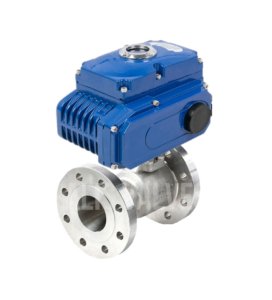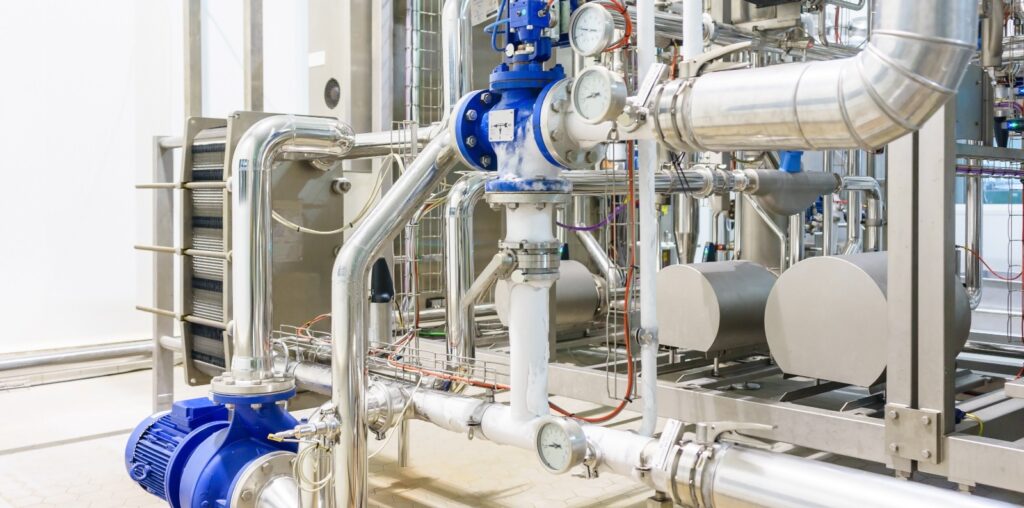Industrial operations rely heavily on efficient and reliable systems to ensure smooth functioning and safety. Industrial valves are a critical component in these systems, regulating the flow of gases, liquids, and other materials. As industries evolve, so does the technology behind these valves, leading to the development of advanced industrial valves that significantly enhance operational safety and reliability. This article delves into how these modern innovations contribute to safer and more dependable industrial processes.
The Evolution of Industrial Valves
The history of industrial valves dates back to the early 19th century when simple designs like gate and ball valves were the norm. These basic models were effective but had limitations in accuracy, durability, and resistance to harsh environments. Over time, technological advancements have led to the creation of sophisticated valve designs, incorporating smart technologies, automation, and high-performance materials.
Today’s advanced valves are engineered to address the specific demands of diverse industries, such as chemical processing, oil and gas, power generation, and food and beverage. These valves are not only built to withstand extreme conditions but are also designed to provide more precise control and ensure safety.
Enhanced Materials for Durability and Safety
One of the key factors contributing to the reliability of advanced industrial valves is the use of enhanced materials. Traditional valves were often made of cast iron or steel, which could corrode or degrade in harsh conditions. Modern valves now utilize high-grade alloys, stainless steel, and composite materials that resist corrosion, wear, and extreme temperatures.
These advanced materials not only prolong the lifespan of the valves but also improve their ability to handle hazardous fluids, reducing the risk of leaks and failures. In industries dealing with corrosive chemicals or high-pressure environments, these materials play a vital role in maintaining safety standards.
Smart Valve Technology for Improved Control
Smart valves are a game-changer in the world of industrial process control. Equipped with sensors, actuators, and communication interfaces, smart valves provide real-time data on flow rates, pressure, temperature, and valve position. This data can be analyzed to detect anomalies, predict maintenance needs, and optimize system performance.
The integration of smart valves with centralized control systems enables operators to monitor and adjust valve operations remotely, reducing the need for manual intervention. This not only minimizes human error but also enhances safety by allowing for quicker responses to potential hazards. In the event of a system malfunction, smart valves can trigger automated shutdowns or rerouting, preventing accidents and damage.

Valve Automation for Consistent Performance
Automation has become a cornerstone of modern industrial processes, and valves are no exception. Advanced industrial valves are often paired with electric, pneumatic, or hydraulic actuators that allow them to operate automatically based on pre-set parameters. This level of automation ensures consistent performance, reduces the risk of operator fatigue, and limits exposure to hazardous environments.
Automated valves are particularly valuable in critical applications where precise control is essential, such as in chemical dosing, steam regulation, and gas distribution. By maintaining accurate and consistent flow rates, automated valves contribute to operational efficiency and safety.
Fail-Safe Designs for Emergency Situations
Safety is a top priority in industries where valve failure can have catastrophic consequences. Advanced industrial valves are designed with fail-safe features that ensure they respond appropriately during emergencies. Common fail-safe mechanisms include spring-loaded actuators that automatically close the valve when power is lost or pressure drops below a certain threshold.
These fail-safe designs provide an extra layer of protection, helping to prevent accidents, equipment damage, and potential environmental hazards. In some cases, valves are also equipped with redundancy features, such as dual actuators or backup power supplies, to guarantee functionality even if one component fails.
Improved Sealing and Leak Prevention
Leak prevention is crucial in maintaining operational safety, especially in industries dealing with hazardous or toxic substances. Advanced industrial valves feature enhanced sealing technologies, such as metal-to-metal seals, triple-offset designs, and high-integrity packing materials. These improvements reduce the risk of leaks, even under extreme pressures and temperatures.
In addition to better seals, many advanced valves are equipped with diagnostic tools that can detect minute changes in pressure or flow, indicating potential leaks. Early detection of leaks allows operators to take corrective action before they escalate into major safety incidents.
Predictive Maintenance and Reduced Downtime
Maintenance plays a significant role in ensuring the reliability of industrial valves. In the past, valve maintenance was often based on fixed schedules, leading to unnecessary downtime or, conversely, overlooked issues. Today’s advanced valves come with predictive maintenance capabilities, utilizing data from embedded sensors to forecast wear and potential failures.
Predictive maintenance helps optimize maintenance schedules, reducing unnecessary shutdowns and extending the operational lifespan of equipment. By preventing unexpected breakdowns, predictive maintenance enhances both the safety and reliability of industrial processes.
Lower Environmental Impact with Advanced Valves
Environmental regulations are becoming stricter, and industries are under pressure to reduce emissions and waste. Advanced industrial valves contribute to environmental sustainability by improving process efficiency and reducing emissions through precise control. Leak-proof designs and better sealing mechanisms minimize the risk of hazardous material release, protecting the environment.
In addition, some advanced valves are designed to handle renewable energy sources, such as biofuels, and are compatible with eco-friendly processes. By supporting cleaner operations, these valves help industries comply with environmental standards and promote sustainability.
The Future of Advanced Industrial Valves
The future of industrial valves looks promising, with ongoing advancements in materials science, smart technology, and automation. Emerging trends include the use of artificial intelligence (AI) for predictive maintenance, the integration of blockchain for secure data management, and the development of more energy-efficient actuators. These innovations will continue to drive the evolution of industrial valves, further enhancing their safety and reliability.
As industries move towards greater automation and smarter systems, the role of advanced valves will only become more critical. Investing in the latest valve technology not only ensures compliance with safety standards but also provides a competitive edge in terms of efficiency and sustainability.
Conclusion
Advanced industrial valves play a vital role in boosting operational safety and reliability across various industries. From improved materials and smart technologies to automation and predictive maintenance, these innovations help maintain safe working environments while optimizing process efficiency. As technology continues to evolve, the capabilities of industrial valves will only expand, making them an indispensable asset in modern industrial operations.




